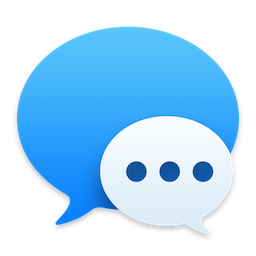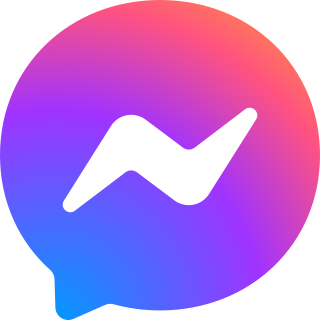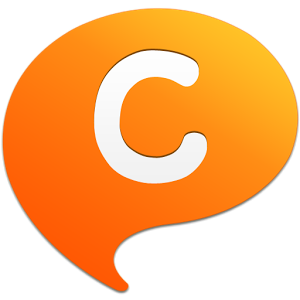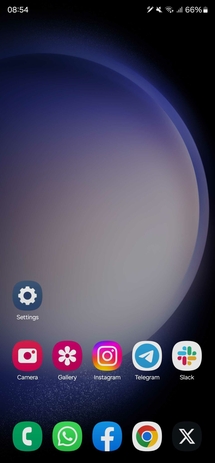
Instant messaging (IM) technology is a type of online chat allowing real-time text transmission over the Internet or another computer network. Messages are typically transmitted between two or more parties, when each user inputs text and triggers a transmission to the recipient(s), who are all connected on a common network. It differs from email in that conversations over instant messaging happen in real-time. Most modern IM applications use push technology and also add other features such as emojis, file transfer, chatbots, voice over IP, or video chat capabilities.
This is a comparison of voice over IP (VoIP) software used to conduct telephone-like voice conversations across Internet Protocol (IP) based networks. For residential markets, voice over IP phone service is often cheaper than traditional public switched telephone network (PSTN) service and can remove geographic restrictions to telephone numbers, e.g., have a PSTN phone number in a New York area code ring in Tokyo.

Rich Communication Services (RCS) is a communication protocol between mobile telephone carriers and between phone and carrier, aiming at replacing SMS messages with a text-message system that is richer, provides phonebook polling, and can transmit in-call multimedia. It is part of the broader IP Multimedia Subsystem. Google has added support for end-to-end encryption for all chats using RCS in their own app, Messages. End-to-end encryption is not a feature of RCS specified by GSMA.

WhatsApp is a freeware, cross-platform, centralized instant messaging (IM) and voice-over-IP (VoIP) service owned by United States tech conglomerate Meta Platforms. It allows users to send text, voice messages and video messages, make voice and video calls, and share images, documents, user locations, and other content. WhatsApp's client application runs on mobile devices, and can be accessed from computers. The service requires a cellular mobile telephone number to sign up. In January 2018, WhatsApp released a standalone business app called WhatsApp Business which can communicate with the standard WhatsApp client.

iMessage is an instant messaging service developed by Apple Inc. and launched in 2011. iMessage functions exclusively on Apple platforms: macOS, iOS, iPadOS, and watchOS.

Messenger is an American proprietary instant messaging app and platform developed by Meta Platforms. Originally developed as Facebook Chat in 2008, the company revamped its messaging service in 2010, released standalone iOS and Android apps in 2011, and released standalone Facebook Portal hardware for Messenger calling in 2018. In April 2015, Facebook launched a dedicated website interface, Messenger.com, and separated the messaging functionality from the main Facebook app, allowing users to use the web interface or download one of the standalone apps. In April 2020, Facebook released a Messenger desktop app for Windows and macOS.

ChatON was a global mobile communication service provided by Samsung Electronics from September 2011 to March 2015.

Facebook Home was a user interface layer for Android smartphones. Developed by the company then known as Facebook, the software was designed to be a drop-in replacement for the device's existing home screen ("launcher"). It provided a replacement home screen that allowed users to easily view and post content on Facebook along with launching apps, a replacement lock screen that displayed notifications from Facebook and other apps, and an overlay which allowed users to chat via Facebook messages or SMS from any app. Facebook Home was unveiled at a press event on April 4, 2013, and was released on April 12, 2013 for a limited selection of devices from HTC and Samsung Electronics—including the HTC First, a new smartphone pre-loaded with the software. Facebook is no longer supporting or providing updates for Facebook Home.

Google Hangouts was a cross-platform instant messaging service developed by Google. It originally was a feature of Google+, becoming a standalone product in 2013, when Google also began integrating features from Google+ Messenger and Google Talk into Hangouts. Google then began integrating features of Google Voice, its Internet telephony product, into Hangouts, stating that Hangouts was designed to be "the future" of Voice.

Telegram Messenger, commonly known as Telegram, is a cloud-based, cross-platform instant messaging (IM) service. It allows users to exchange messages, share media and files, and hold private and group voice or video calls, as well as public livestreams. It is available for Android, iOS, Windows, macOS, Linux, and web browsers. Telegram provides end-to-end encryption in voice and video calls, and in optional private chats, which Telegram calls Secret Chats.
TextSecure was an encrypted messaging application for Android that was developed from 2010 to 2015. It was a predecessor to Signal and the first application to use the Signal Protocol, which has since been implemented into WhatsApp and other applications. TextSecure used end-to-end encryption to secure the transmission of text messages, group messages, attachments and media messages to other TextSecure users.

Signal is an encrypted messaging service for instant messaging, voice, and video calls. The instant messaging function includes sending text, voice notes, images, videos, and other files. Communication may be one-to-one between users, or for group messaging.

Google Allo was an instant messaging mobile app by Google for the Android and iOS mobile operating systems, with a web client available on Google Chrome, Mozilla Firefox, and Opera. It closed on March 12, 2019.
Google Duo was a proprietary voice over IP (VoIP) and videotelephony service released in 2016 by Google and merged into its Google Meet product in 2022. It was available for Android, IOS and web browsers. It let users make and receive one-to-one and group audio and video calls with other Duo users in high definition, using end-to-end encryption by default. Duo could be used either with a phone number or a Google account, allowing users to call someone from their contact list.

Google Lens is an image recognition technology developed by Google, designed to bring up relevant information related to objects it identifies using visual analysis based on a neural network. First announced during Google I/O 2017, it was first provided as a standalone app, later being integrated into Google Camera but was reportedly removed in October 2022. It has also been integrated with the Google Photos and Google Assistant app and with Bard as of 2023.

Element is a free and open-source software instant messaging client implementing the Matrix protocol.

Phone Link, previously Your Phone, is a syncing software developed by Microsoft to connect Windows PCs to Android and iOS mobile devices to view notifications, make phone calls, use mobile apps amongst others, via the PC. It is a native component of Windows 10 and Windows 11, where it is a UWP app and consists of a driver that communicates with the mobile device, where it is named the Link to Windows app. Phone Link makes use of Wi-Fi, Bluetooth for voice calls, or mobile data; it syncs via Microsoft servers, meaning that an internet connection is required.

One UI is a user interface (UI) developed by Samsung Electronics for its Android devices running Android 9 "Pie" and later. Succeeding Samsung Experience and TouchWiz, it is designed to make using larger smartphones easier and be more visually appealing. To provide more clarity, some elements of the UI are tweaked to match colors that are based on the color of the user's phone. It was announced at Samsung Developer Conference in 2018, and was unveiled in Galaxy Unpacked in February 2019 alongside the Galaxy S10 series, Galaxy Buds and the Galaxy Fold.
Comparison of user features of messaging platforms refers to a comparison of all the various user features of various electronic instant messaging platforms. This includes a wide variety of resources; it includes standalone apps, platforms within websites, computer software, and various internal functions available on specific devices, such as iMessage for iPhones.












